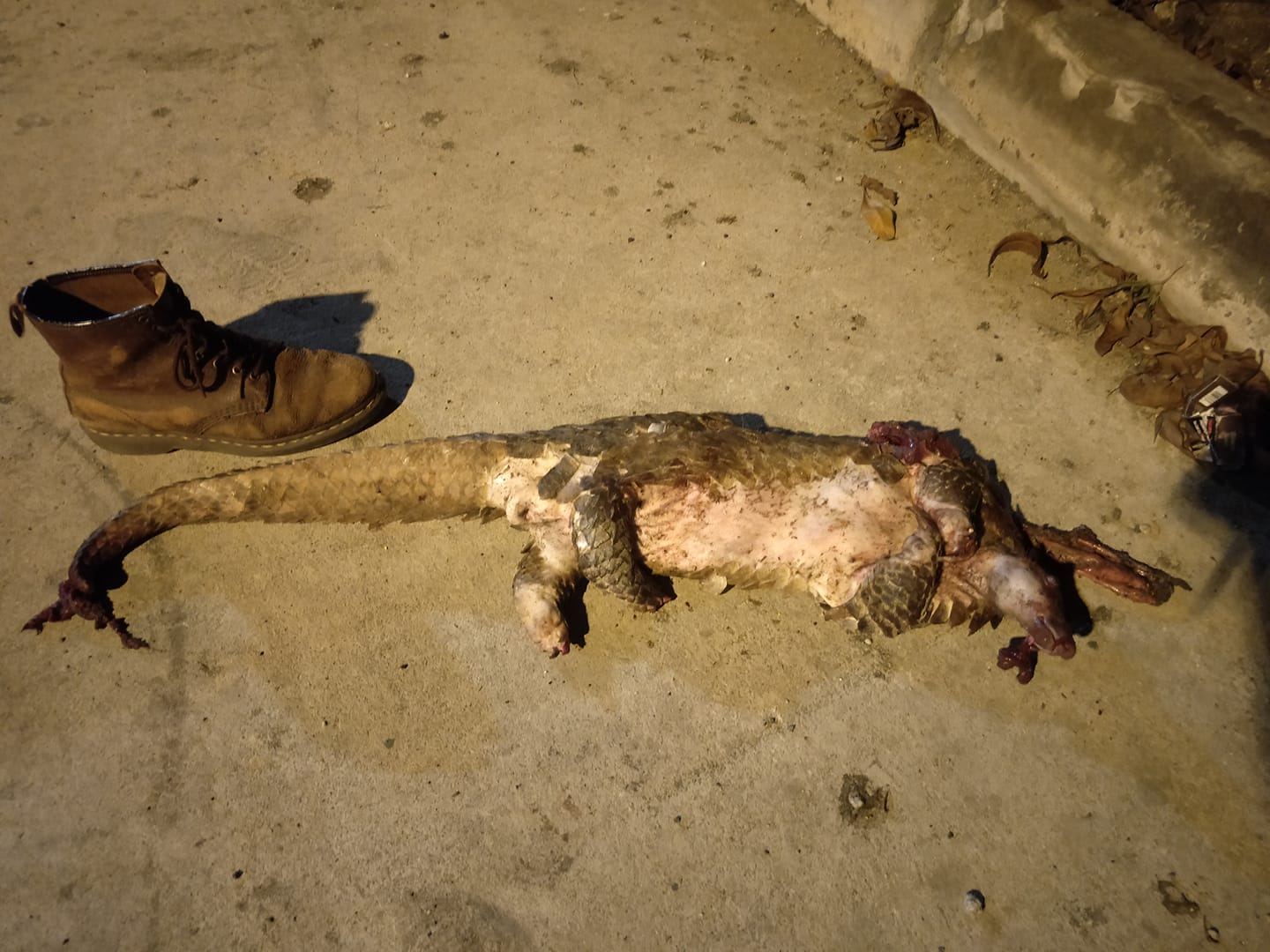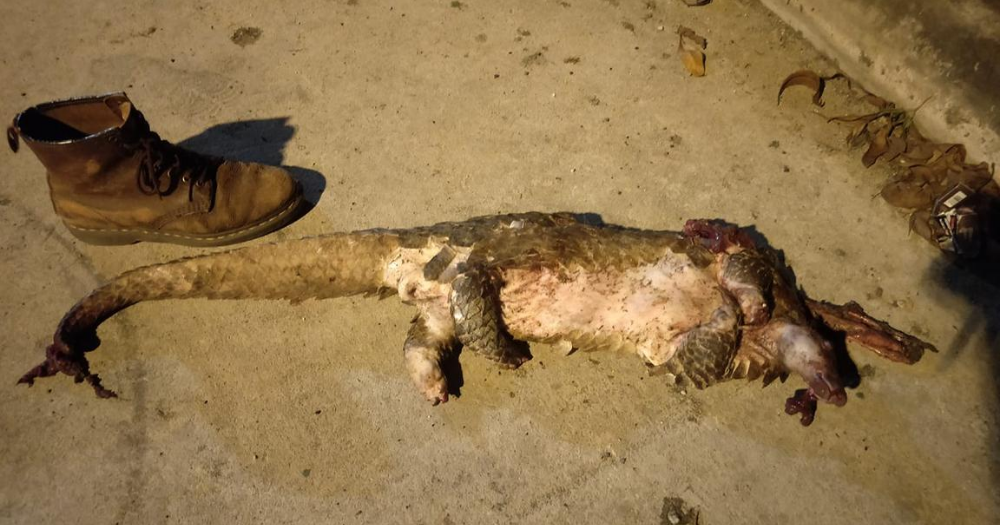Roadkill is not an uncommon sight on Singapore roads, especially in areas bordering forests and nature reserves.
But such sights can be even more painful to witness when it involves endangered creatures like Singapore's native Sunda pangolin.
Carried body to side of road
One Mark Lin came across the carcass of a pangolin recently while he was riding his motorcycle near the Central Catchment Nature Reserve towards the Pan-Island Expressway.
It was around 2am at the time.
Speaking to Mothership, Lin shared that he slowed down when he realised it could be a pangolin.
Stopping under a bridge nearby, Lin then walked back to where the pangolin was. Waiting until the road was free of cars, he then ran out to pick it up and carry it to the side of the road.
Lin noted that the scaly creature was quite big and heavy, but that its body was still intact after the accident and still warm.
Here's a photo of the carcass, with his boot for scale.
 Photo from Mark Lin / FB
Photo from Mark Lin / FB
Lin subsequently made a report to the Lee Kong Chian Natural History Museum, which accepts animal carcasses for research and education purposes.
More details were provided to the museum officer, Marcus Chua.
Chua, who is a researcher that has studied the native leopard cats and led the team studying the carcass of the very first sperm whale found on Singapore shores, told Lin to leave it at the side of the road.
The pangolin carcass would be collected by the National Parks Board come morning and sent to Wildlife Reserves Singapore for a post-mortem examination.
Samples would then be sent to NParks for analysis, and the carcass eventually sent back to the museum for preservation.
Chua added that the pangolin looked quite old, and was possibly a female.
"Important" to do this
Lin shared that despite his fatigue in the wee hours of the morning, he felt that it was "so important to do this".
Lin, who happens to be the co-founder of non-profit Society for Animal Matters, said: "Wildlife suffer so much from our intrusions. It's nice to know that just this one little action of mine would potentially lead to making an impact."
Pangolins are the world's most trafficked animal due to the high demand for their scales and meat in traditional Chinese medicine in Asian countries.
The particular species found in Singapore, the Sunda pangolin, is critically endangered as well. Here, their biggest threat is habitat loss.
As they are slow-moving creatures who curl up in a ball when frightened, pangolins are often victims of road traffic accidents too.
Members of the public who come across the carcass of a pangolin, or other uncommon animals like civet cats or Sambar deer, can report their findings to the Lee Kong Chian Natural History Museum.
These carcasses can aid researchers in understanding more about the critter's habitat and diet, as well as help them provide suggestions to authorities on conservation efforts like installing hoarding to reduce the occurrence of roadkill.
Top photo from Mark Lin / FB
If you like what you read, follow us on Facebook, Instagram, Twitter and Telegram to get the latest updates.
